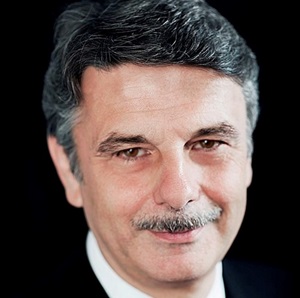Links to external sources may no longer work as intended. The content may not represent the latest thinking in this area or the Society’s current position on the topic.
Robotics and Autonomous Systems – Vision Challenges and Actions

Read the conference report (PDF)
Robotics and autonomous systems represent key areas of scientific and engineering endeavour now and in the future. They are of immense societal impact, pervading all areas of society including medicine, transport, and manufacturing. There is great potential for industrial advances including new start-up companies, economic opportunities for the UK and elsewhere. Realising the potential for these new technologies requires transformational science and engineering closely allied with industry and government.
This high-level conference will bring together national and international leaders in robotics and autonomous systems across academia, industry and government to scope the long-term vision (20 to 30 years) and challenges in this exciting and rapidly developing field. It will define actions required to ensure maximum impact for society from robotics and autonomous systems.
The discussion will be captured in a conference report, providing invaluable evidence informing decision/policy makers about the actions required to nurture, promote and benefit from innovation in robotics and autonomous systems.
Attending this event
This event is intended for representatives from industry, academia and government who have an interest in robotics and autonomous systems or who are seeking to understand its potential impacts. Please contact the Industry Team for further information.
About the conference series
The conference is the second in a new and unique series launched by the Royal Society to address the major scientific and technical challenges of the next decade and beyond. Breakthrough Science and Technologies: Transforming our Future conferences will feature cutting-edge science from industry and academia and bring together leading experts from the wider scientific community, industry, government, funding bodies and charities.
Each conference will focus on one topic and will seek to cover key issues, including:
- The current state of the key industry sectors involved
- The position of the UK and how it can benefit from the technology
- The future direction of research
- The challenges faced in turning research into commercial success
- The skills base needed to deliver major scientific advances
- The wider social and economic impacts
The conferences are a key component of the Society’s five-year Science, Industry and Translation initiative which demonstrates our commitment to reintegrate science and industry at the Society and to promote science and its value by connecting academia, industry and government.
Enquiries: industry@royalsociety.org
Organisers
Schedule
Chair

Professor Chris Melhuish, Bristol Robotics Laboratory

Professor Chris Melhuish, Bristol Robotics Laboratory
Chris Melhuish is the founding member and Director of the Bristol Robotics Laboratory (BRL), a collaborative partnership between the University of the West of England and the University of Bristol, and home to the UK’s largest academic centre for multi-disciplinary robotics research.
Chris holds professorial chairs at both Universities and has been a Visiting Professor at Sheffield University and Visiting Research Fellow at Edinburgh University. His research interests include safe human-robot interaction, energetically autonomous robots, haptics and swarm systems. He has published over 200 peer reviewed papers and led numerous UK and EU research projects. He has acted in an advisory capacity to the UK Government and been a member of the European Commission’s Future Emerging Technologies and ISTAAG committees and working groups. He has briefed EU Ministers on Robotics at the European Parliament, and served as an expert at planning meetings for the EU Future Emerging Technology (FET) programme and EU Public Private Partnership in Robotics. He was an Executive Board Member of the Robot Companions Flagship Coordinated Action and is currently a lead partner in the EU funded Echord++ initiative, which addresses research translation between Universities and industry. Chris served on the Robotics and Autonomous Systems advisory committee (RAS-SIG) under Innovate UK, and contributed to the recently published UK robotics strategy.
| 09:30 - 09:35 |
Opening Remarks
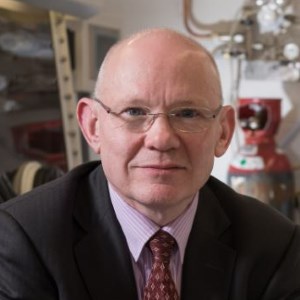
Professor Peter Bruce FRS

Professor Peter Bruce FRSPeter Bruce is Wolfson Professor of Materials at the University of Oxford. His research interests embrace materials chemistry and electrochemistry, with a particular emphasis on energy storage. Recent efforts have focused on the synthesis and understanding of new cathode materials for lithium and sodium ion batteries, understanding processes in all solid-state batteries and the challenges of the lithium-air battery. His pioneering work has provided many advances. Peter has received numerous awards, including the Tilden Prize of the RSC, the Carl Wagner Award of the ECS, the Liversidge Award of the RSC and the Hughes Medal of the RS. He has also been recognised as a Highly Cited Researcher by Clarivate Analytics each year since 2015. Peter is a founder and Chief Scientist of the Faraday Institution, the UK centre for research on electrochemical energy storage. Peter took up the position of Physical Secretary and Vice President of the Royal Society in 2018. |
|---|---|
| 09:35 - 10:10 |
Human and machine in the age of experience: new possibilities to invent a more sustainable world
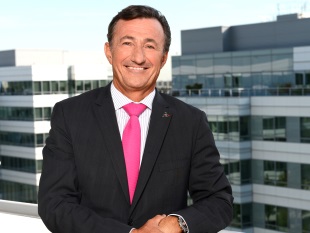
Dr Bernard Charlès, President and CEO, Dassault Systèmes

Dr Bernard Charlès, President and CEO, Dassault SystèmesBernard Charlès has been working as the CEO of Dassault Systèmes since 1995. He started his career in the company in 1983 to develop new design technologies. In 1986, he founded a dedicated New Technologies, Research and Strategy department, and in 1988 was appointed President of Strategy, Research and Development. Charlès has helped instill a culture of ongoing innovation to further consolidate Dassault Systèmes’ scientific capabilities and make science part of the company’s DNA. The inspiration behind digital mock-up, product lifecycle management and 3DEXPERIENCE®, he firmly believes that 3D technology is about making possible the impossible: 3D universes are the most powerful vehicle for testing concepts and creating the future, bringing dream and reality together, and stretching the limits of science and imagination to drive progress in society. Charlès has positioned Dassault Systèmes as the preferred partner for innovation, empowering businesses with sustainable step-changes in competitive performance. The company, established in 1981 and world leader in 3D software, has been recognized as one of Forbes’ "The World’s Most Innovative Companies". Bernard Charlès holds the rank of Knight (2005) and Officer (2012) in the “Légion d’Honneur” (French Legion of Honor) and is a member of the French Academy of Technology. He is a graduate of the Ecole Normale Supérieure engineering school in Cachan and has a PhD in mechanical engineering majoring in automation engineering and information science. He also holds an agrégation — the most senior teaching qualification achievable in France (specializing in mechanical engineering). |
| 10:10 - 10:45 |
Creating Innovation from Invention: the UK RAS strategy and lessons from marine robotics
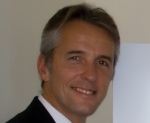
Professor David Lane FREng, Heriot-Watt University

Professor David Lane FREng, Heriot-Watt UniversityDavid Lane is Director of the Edinburgh Centre for Robotics, a £35M joint venture between Heriot-Watt and Edinburgh Universities, involving some 30 world leading investigators in 12 cross disciplinary research groups across Engineering and Informatics. It includes the EPSRC Centre for Doctoral Training in Robotics and Autonomous Systems (RAS), and the ROBOTARIUM National Equipment Facility for Research into Robot Interaction. He also directs the Oceans Systems Laboratory at HWU. In 2001 he founded SeeByte Ltd and Inc, and as CEO until 2010 lead the company’s organic evolution from startup to a multi-million dollar organization commercialising a 20 year portfolio of research in autonomous subsea robotics into the international offshore energy and defence markets. Growing at an average 45% pa during the recession, continually cash positive, with 75% of its business in exports to three continents and offices in Edinburgh, San Diego and Seattle, SeeByte won the 2010 Praxis Unico Business Impact Achieved Award and 2013 Scottish Digital Technology Award for International Growth. In public leadership roles, he chaired the BIS/InnovateUK Robotics and Autonomous Systems Special Interest Group (RAS-SIG) from 2013-14, formulating and launching the UK’s national RAS innovation strategy for the Minister for Universities and Science. From 2013-15 he was a Director of the euRobotics AISBL not-for-profit shaping the EU Horizon2020 Robotics public-private partnership between research and industry. |
| 11:15 - 11:50 |
Machines that learn to see – big data or explanatory models?

Professor Andrew Blake FREng FRS, The Alan Turing Institute

Professor Andrew Blake FREng FRS, The Alan Turing InstituteAndrew Blake is an engineer whose innovative work on image analysis has made it possible for computers to react to the world around them based on the visual data they receive. His research has focused particularly on the accurate tracking of motion and the reconstruction of surfaces from reflected light. Amongst his many contributions to the field, he is perhaps best known for the development of the condensation algorithm — the first tool that allowed computers to correctly interpret complex motion. As the Managing Director of Microsoft Research Cambridge, Andrew was also part of the team behind the company’s Kinect controller — a revolutionary gaming system capable of following instructions dictated by the body movements of its users. The recipient of the Silver Medal and MacRobert Award of the Royal Academy of Engineering, Andrew has also won the prestigious Mountbatten Medal from the Institution of Engineering and Technology. In 2010, he was elected to the council of the Royal Society. |
| 11:50 - 12:25 |
Shared autonomy for interactive robotics: closing the loop
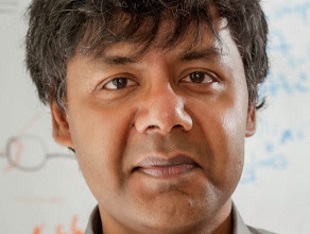
Professor Sethu Vijayakumar, The University of Edinburgh

Professor Sethu Vijayakumar, The University of EdinburghSethu Vijayakumar is the Professor of Robotics in the School of Informatics at the University of Edinburgh, UK and Director of Edinburgh Centre for Robotics (ECR). Since August 2007, he holds the prestigious Senior Research Fellowship of the Royal Academy of Engineering, co-funded by Microsoft Research. He also holds additional appointments as an Adjunct Faculty of the University of Southern California (USC), Los Angeles and a Visiting Research Scientist at the RIKEN Brain Science Institute, Japan. Prof. Vijayakumar has pioneered the use of large scale machine learning techniques in the real time control of large degree of freedom anthropomorphic robotic systems including the SARCOS and the HONDA ASIMO humanoid robots, KUKA-DLR robot arm and iLIMB prosthetic hand. He is the author of over 150 highly cited publications in these fields and the winner of the IEEE Vincent Bendix award, the Japanese Monbusho fellowship, 2013 IEEE Transaction on Robotics King Sun Fu Award and several paper awards from leading conferences. He is a Fellow of the Royal Society of Edinburgh and a keen science communicator with a significant annual outreach agenda. |
| 12:25 - 13:00 |
Haptic intelligence in robotics
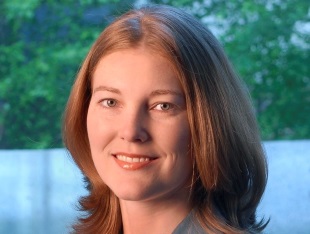
Professor Katherine J. Kuchenbecker, University of Pennsylvania

Professor Katherine J. Kuchenbecker, University of PennsylvaniaKatherine J. Kuchenbecker is an Associate Professor in Mechanical Engineering and Applied Mechanics at the University of Pennsylvania, with a secondary appointment in Computer and Information Science. Her research centres on the dual problems of creating robotic technology that can deliver realistic haptic feedback to human users and enabling autonomous robots to understand their haptic interactions with the world. She directs the Penn Haptics Group, which is part of the General Robotics, Automation, Sensing, and Perception (GRASP) Laboratory. She has received several honours for her research, including an NSF CAREER Award in 2009, Popular Science Brilliant 10 in 2010, the IEEE Robotics and Automation Society Academic Early Career Award in 2012, and many best paper and best demonstration awards. Prior to becoming a professor, she completed a postdoctoral fellowship at the Johns Hopkins University, and she earned her Ph.D. in Mechanical Engineering at Stanford University in 2006. |
Chair
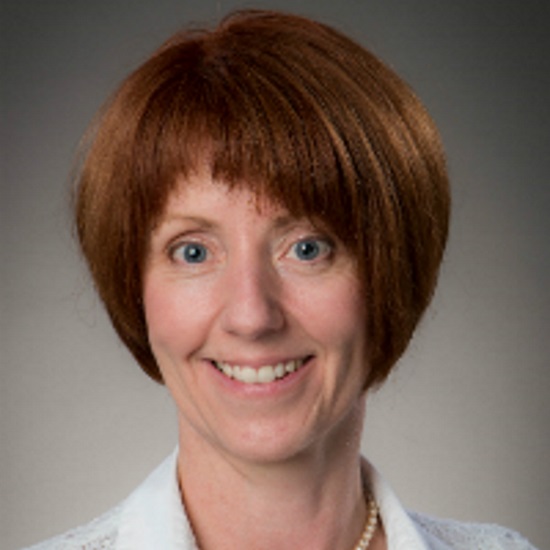
Professor Carole Mundell, University of Bath

Professor Carole Mundell, University of Bath
Carole Mundell is Professor of Extragalactic Astronomy and Head of the Department of Physics at the University of Bath. An observational astrophysicist, she exploits international ground- and space-based facilities across the electromagnetic spectrum to study cosmic black holes and their environments. Her team specializes in developing and using novel technology on autonomous robotic telescopes to catch the fast-fading light from powerful but unpredictable cosmic explosions such as Gamma Ray Bursts. Using this technology, Carole's team discovered the first direct evidence of large-scale ordered magnetic fields in plasma ejected at speeds close to that of light by a newly formed, distant black hole system.
Carole has held prestigious fellowships including a Royal Society Wolfson Research Merit Award for the study of black-hole driven explosions and the dynamic Universe and in 2016, she was named FDM Everywoman in Technology Woman of the Year. With the wealth of new astronomical facilities planned to come online in the coming decade, she is particularly interested in the engineering, mathematical and computing challenges of real-time, autonomous and interpretive systems in the era of 'big data'.
Image: © IDPS, University of Bath

Dick Elsy, CEO, High Value Manufacturing Catapult

Dick Elsy, CEO, High Value Manufacturing Catapult
Dick Elsy is the Chief Executive of the High Value Manufacturing Catapult. He joined the Catapult from Torotrak plc, the global innovator in gearless traction drive technology. Prior to this Dick was Product Development Director at Jaguar Cars Limited where he led the introduction of several new car programmes. Dick’s earlier roles were also in the automotive industry with a period of time spent with BMW in Munich leading a major car programme and a long career with Land Rover, where, as a member of the executive board, he devised, and went on to implement, the Land Rover Freelander. Dick is currently the Chair of both the Automotive Council and Aerospace Growth Partnership’s Manufacturing Working Groups and is a member of the Advanced Materials Leadership Council. He is also a member of the Automotive Council’s Technology group and sits on the board of Birmingham Science City and AIRTO. Dick is the holder of a Silver Medal from the Royal Academy of Engineering and is also a Chartered Engineer and a Fellow of the Institution of Mechanical Engineers.
| 14:00 - 14:35 |
It's all about the people: the next major step towards everyday robots
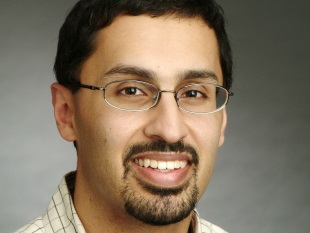
Professor Nick Roy, Computer Science and Artificial Intelligence Laboratory, MIT

Professor Nick Roy, Computer Science and Artificial Intelligence Laboratory, MITNicholas Roy is an Associate Professor in the Department of Aeronautics & Astronautics at the Massachusetts Institute of Technology and a member of the Computer Science and Artificial Intelligence Laboratory (CSAIL) at MIT. He received his Ph.D. in Robotics from Carnegie Mellon University in 2003. His research interests include autonomous robots, unmanned air vehicles, human-computer interaction, decision-making under uncertainty and machine learning. In addition to his academic research, he spent two years, from 2012-2014, as the founder of Project Wing at Google[x]. |
|---|---|
| 14:35 - 15:10 |
Robots in agriculture
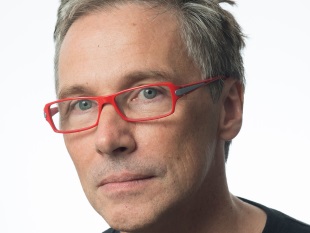
Professor Peter Corke, Queensland University of Technology

Professor Peter Corke, Queensland University of TechnologyPeter Corke is a professor of robotic vision at Queensland University of Technology, and Director of the ARC Centre of Excellence for Robotic Vision. His research is concerned with enabling robots to see, and the application of robots to mining, agriculture and environmental monitoring. He is a fellow of the IEEE, former editor-in-chief of the IEEE Robotics & Automation magazine, founding and associate editor of the Journal of Field Robotics, founding multi-media editor and editorial board member of the International Journal of Robotics Research, member of the editorial advisory board of the Springer Tracts on Advanced Robotics series, recipient of the Qantas/Rolls-Royce and Australian Engineering Excellence awards, and has held visiting positions at Oxford, University of Illinois, Carnegie-Mellon University and the University of Pennsylvania. He received his undergraduate and Masters Degrees in electrical engineering and PhD from the University of Melbourne. |
| 15:40 - 16:15 |
Mobile autonomy: a pervasive technology
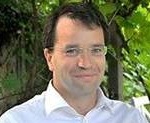
Professor Paul Newman FREng, University of Oxford

Professor Paul Newman FREng, University of OxfordPaul Newman is the BP Professor of Information Engineering at the University of Oxford and an EPSRC Leadership Fellow. He heads the Mobile Robotics Group (mrg.robots.ox.ac.uk) within the Department of Engineering Science which enjoys a world leading reputation in mobile autonomy - developing machines, robots and cars which map, navigate through and understand their environments. His focus lies on pushing the boundaries of navigation and autonomy techniques in terms of both endurance and scale. The Mobile Robotics Group has developed a keen focus on intelligent transport for example the RobotCar www.robotcar.org.uk and enjoys collaborations with many industrial partners which provide exploitation opportunities to drive the research. He is on the board of the Robotics Science and Systems Foundation, the International Journal of Robotics Research and the Journal of Field Robotics. He is an inaugural member of the BIS UK Robotics and Autonomous Systems Special Interest Group and sits on the Scientific Advisory Council for the UK Department of Transport. In September 2014, he was elected fellow of the Royal Academy of Engineering with a citation for outstanding contributions to robot navigation. |
| 16:15 - 16:50 |
Microrobotics and nanomedicine: future directions in medical robotics
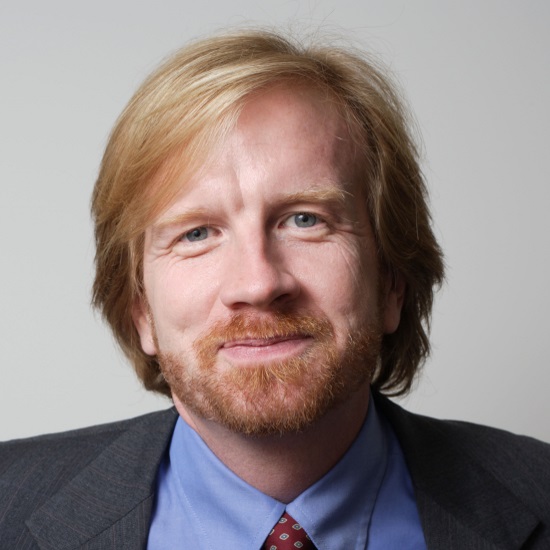
Professor Bradley Nelson, ETH-Zurich

Professor Bradley Nelson, ETH-ZurichBrad Nelson is the Professor of Robotics and Intelligent Systems at ETH Zürich. His primary research focus is on microrobotics and nanorobotics emphasizing applications in biology and medicine. He received a B.S.M.E. from the University of Illinois and an M.S.M.E. from the University of Minnesota. He has been at Honeywell and Motorola and served as a United States Peace Corps Volunteer in Botswana, Africa, before obtaining a Ph.D. in Robotics from Carnegie Mellon University in 1995. He was Assistant Professor at the University of Illinois at Chicago (1995-1998) and Associate Professor at the University of Minnesota (1998-2002). He became Full Professor at ETH Zürich in 2002. He has received a number of awards and serves on several editorial boards. He has been Department Head of Mechanical and Process Engineering, Chairman of the ETH Electron Microscopy Center, and is a member of the Research Council of the Swiss National Science Foundation. |

